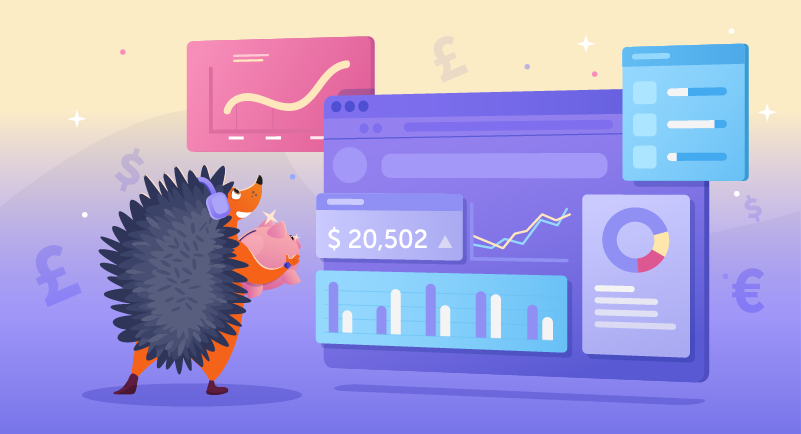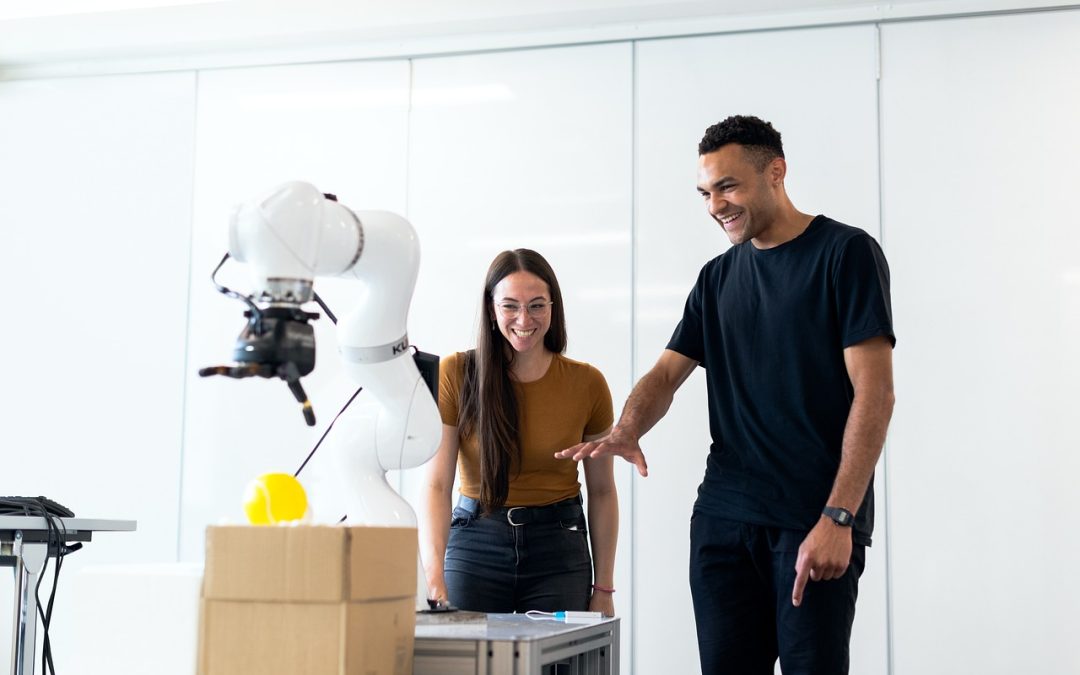
by jsendak | Jun 6, 2025 | Namecheap
Building Online Credibility: The Art of Choosing the Right Domain Name for Financial Professionals
In a world where your online presence can be just as significant as your physical office, the domain name you choose for your website is your digital handshake. For financial professionals, a strong domain name is not just a URL—it is a powerful tool of communication, brand identity, and credibility in a highly competitive market. As such, the selection of an appropriate domain name isn’t a task to be taken lightly but an opportunity to strategically position your services within the digital landscape. This article aims to unravel the intricacies involved in choosing a domain name that not only stands out but also instills trust and professionalism.
Why Does the Right Domain Matter?
Before diving into the nuances of domain name selection, it is crucial to acknowledge the sheer impact a well-chosen domain can have on your digital identity. First impressions are vital in the finance industry, and your domain name is often the first point of contact between your business and potential clients. A domain name that resonates with your audience while encapsulating the essence of your brand can enhance recognition and foster trust—an invaluable currency in the realm of finance.
Key Considerations in Domain Selection
Selecting the right domain name is an exercise in balance and foresight. Below, we outline some of the critical factors that financial professionals must consider to navigate this digital terrain effectively:
- Brand Relevance: Aligning your domain name with your brand to ensure that it is memorable and reflective of your expertise.
- Professional Image: Conveying a sense of trustworthiness and legitimacy through a carefully crafted domain.
- SEO and Visibility: Leveraging SEO best practices to improve your website’s online visibility and search rankings.
- Future-Proofing: Choosing a domain that is adaptable to future growth and expansion of your services.
Overcoming Common Challenges
While the path to picking the perfect domain can be fraught with challenges—such as domain saturation and the fine line between creative and confusing choices—financial professionals can employ strategies to hurdle these obstacles with finesse.
- Navigating trademark laws and regulations to ensure the legality of your domain choice
- Weighing the pros and cons of trendy vs. classic domain names
- Understanding the impact of domain extension variety (.com, .finance, .advisor, etc.) on consumer perception
In conclusion, this article will delve into these considerations and challenges with a critical lens, empowering financial professionals to make informed decisions that will solidify their online presence and, ultimately, win the trust of their clientele. The carefully curated insights provided serve as a north star for thriving in the digital age where the power of a domain name is unparalleled in building credibility online.
“In the digital age, trust is the currency of the realm, and a well-chosen domain name is the mint where it is coined.” — Your Financial Guide

This article details how modern financial professionals can earn credibility online by choosing the right domain name.
Read the original article
by jsendak | Jun 6, 2025 | Computer Science
arXiv:2501.07182v2 Announce Type: cross
Abstract: TikTok has gradually become one of the most pervasive social media platforms in our daily lives. While much can be said about the merits of platforms such as TikTok, there is a different kind of attention paid towards the political affect of social media today compared to its impact on other aspects of modern networked reality. I explored how users on TikTok discussed the crisis in Palestine that worsened in 2023. Using network analysis, I situate keywords representing the conflict and categorize them thematically based on a coding schema derived from politically and ideologically differentiable stances. I conclude that activism and propaganda are contending amongst themselves in the thriving space afforded by TikTok today.
Expert Commentary: Analyzing the Political Discourse on TikTok
As TikTok continues to rise in popularity, it has become a platform where not only entertainment but also serious political discussions take place. The crisis in Palestine, which escalated in 2023, became a focal point for many users on TikTok, sparking debates, activism, and propaganda campaigns.
Multi-disciplinary Nature of the Content
The analysis of user discussions on TikTok regarding the Palestine crisis involves a multi-disciplinary approach. By using network analysis and categorizing keywords thematically, the researcher delves into fields such as sociology, political science, and media studies. Understanding how different ideological stances are represented on the platform provides valuable insights into the intersection of technology and society.
Relation to Multimedia Information Systems
The content on TikTok, including videos, hashtags, and user interactions, can be considered part of multimedia information systems. Analyzing the political discourse on the platform requires examining how users engage with various forms of media to convey their messages. This ties into the broader field of multimedia information systems, which studies how information is created, processed, and shared in digital environments.
Connection to Animations, Artificial Reality, Augmented Reality, and Virtual Realities
While TikTok primarily features short videos and user-generated content, it is also intertwined with animations, artificial reality, augmented reality, and virtual realities. Users can create visually engaging videos using filters, effects, and virtual backgrounds, enhancing their message and reaching a wider audience. Understanding how these technologies are used in the context of political discussions adds another layer to the analysis of user behavior on TikTok.
Future Implications
As activism and propaganda continue to compete on social media platforms like TikTok, it raises questions about the role of technology in shaping political discourse. Moving forward, researchers and policymakers need to consider how online platforms can influence public opinion, mobilize movements, and shape narratives. By studying the dynamics of political discussions on TikTok, we can better understand the evolving landscape of digital communication and its impact on society.
Read the original article
by jsendak | Jun 6, 2025 | AI
arXiv:2506.04244v1 Announce Type: new
Abstract: We introduce ProLoRA, enabling zero-shot adaptation of parameter-efficient fine-tuning in text-to-image diffusion models. ProLoRA transfers pre-trained low-rank adjustments (e.g., LoRA) from a source to a target model without additional training data. This overcomes the limitations of traditional methods that require retraining when switching base models, often challenging due to data constraints. ProLoRA achieves this via projection of source adjustments into the target model’s weight space, leveraging subspace and null space similarities and selectively targeting aligned layers. Evaluations on established text-to-image models demonstrate successful knowledge transfer and comparable performance without retraining.
Expert Commentary: ProLoRA in Text-to-Image Diffusion Models
ProLoRA, a novel approach introduced in this study, demonstrates the potential for zero-shot adaptation in text-to-image diffusion models. This method allows for the efficient transfer of pre-trained low-rank adjustments from a source model to a target model without the need for additional training data. This is a significant advancement in the field, as traditional methods often struggle with the challenge of retraining when switching base models, which can be particularly difficult due to data constraints.
What makes ProLoRA unique is its ability to project source adjustments into the weight space of the target model, leveraging similarities in subspaces and null spaces while selectively targeting aligned layers. By doing so, ProLoRA is able to achieve successful knowledge transfer and comparable performance without the need for retraining, as demonstrated in evaluations on established text-to-image models.
Multi-disciplinary Implications
The concepts introduced in ProLoRA have significant multi-disciplinary implications, particularly at the intersection of machine learning, natural language processing, and computer vision. By enabling zero-shot adaptation in text-to-image diffusion models, ProLoRA opens up new possibilities for a wide range of applications, from content generation to image manipulation.
Furthermore, the method’s reliance on low-rank adjustments and projection techniques underscores the importance of understanding linear algebra and optimization in the context of deep learning. This highlights the interconnected nature of different disciplines in advancing the capabilities of AI systems.
Overall, ProLoRA represents a promising step forward in the field of text-to-image models, showcasing the power of cross-disciplinary approaches in driving innovation and efficiency in machine learning applications.
Read the original article

by jsendak | Jun 6, 2025 | GR & QC Articles
arXiv:2506.04304v1 Announce Type: new
Abstract: Astrophysical observations provide compelling evidence for the existence of dark matter, a non-luminous component dominating the universe’s mass-energy budget. Its gravitational influence is well-established on galactic scales; however, dark matter’s precise nature and effect on spacetime geometry remain open questions. This study investigates modifications to the Schwarzschild metric due to the presence of dark matter, modeled as a perfect fluid with a specific equation of state. We derive an “exponential” metric incorporating this dark matter contribution and calculate its key characteristics: the event horizon, innermost stable circular orbit (ISCO), and photon sphere. Comparing these with Schwarzschild predictions reveals distinct deviations dependent on the dark matter distribution. Furthermore, we analyze the orbital velocity profiles derived from the exponential metric, demonstrating its potential to explain the observed flat rotation curves of galaxies. Our results underscore the importance of considering modified metrics in accurately describing spacetime near massive objects and provide a theoretical framework for further investigations into dark matter’s role in galactic dynamics.
Conclusions:
The study investigates modifications to the Schwarzschild metric due to the presence of dark matter, modeled as a perfect fluid with a specific equation of state. An “exponential” metric that incorporates this dark matter contribution is derived, and key characteristics such as the event horizon, innermost stable circular orbit (ISCO), and photon sphere are calculated. Comparisons with Schwarzschild predictions reveal distinct deviations dependent on the dark matter distribution. The orbital velocity profiles derived from the exponential metric show potential to explain the observed flat rotation curves of galaxies. The results highlight the importance of considering modified metrics in accurately describing spacetime near massive objects and provide a theoretical framework for further investigations into dark matter’s role in galactic dynamics.
Future Roadmap:
- Exploring Dark Matter Properties: Future research can focus on refining the equation of state for dark matter and studying its distribution in more detail to better understand its impact on spacetime geometry.
- Testing Predictions with Observations: Observational data can be utilized to test the predictions of the exponential metric and validate its ability to explain phenomena such as flat rotation curves.
- Developing Advanced Models: Advanced mathematical and computational models can be developed to further investigate the implications of dark matter on galactic dynamics and explore new avenues for theoretical frameworks.
Potential Challenges:
- Obtaining Accurate Data: Gathering precise observational data on dark matter distributions and galactic dynamics can be challenging and may require sophisticated instruments and techniques.
- Complex Mathematical Formulations: Developing and solving complex mathematical equations to describe the interactions between dark matter and spacetime geometry can be difficult and require expertise in theoretical physics.
- Interpreting Observational Results: Interpreting observational results in the context of theoretical predictions may involve uncertainties and require careful analysis to draw meaningful conclusions.
Opportunities on the Horizon:
- Advancements in Cosmology: Further studies on dark matter can lead to significant advancements in our understanding of the universe’s structure and evolution.
- New Insights into Galactic Dynamics: Discoveries related to dark matter can provide new insights into the behavior of galaxies and the mechanisms driving their rotation curves.
- Potential for Breakthrough Discoveries: Theoretical frameworks developed to study dark matter may pave the way for groundbreaking discoveries in astrophysics and cosmology.
Read the original article

by jsendak | Jun 6, 2025 | Computer Science
Expert Commentary: Maximizing the Potential of Computational Methods in Qualitative Data Analysis
Qualitative research has long been recognized for its ability to provide deep insights into individuals’ experiences, beliefs, and behaviors. However, the labor-intensive nature of qualitative data collection and analysis often leads to underutilization of this valuable resource. This paper advocates for the secondary analysis of qualitative data, showcasing the untapped potential that computational methods offer in reworking and repurposing existing data.
The Benefits of Secondary Analysis
- Efficiency: By leveraging existing qualitative data, researchers can save time and resources that would otherwise be spent on data collection.
- Enhanced Understanding: Secondary analysis allows for a more in-depth exploration of research questions by combining multiple datasets and viewpoints.
- Innovation: Computational methods enable researchers to uncover patterns and relationships across diverse contexts and timeframes that may not be apparent with traditional qualitative analysis techniques.
Opportunities with Computationally Intensive Secondary Analysis
One of the key advantages of computational methods in secondary analysis is the ability to synthesize data from various sources, creating data assemblages that can address complex research phenomena. By examining data across multiple contexts and timeframes, researchers can gain a more holistic understanding of the factors influencing social phenomena and human behavior.
“The integration of computational methods in secondary analysis opens up new possibilities for uncovering hidden patterns and relationships within qualitative data.”
Furthermore, the use of computational tools can facilitate the development of innovative research designs that transcend traditional disciplinary boundaries. By combining qualitative data with quantitative techniques, researchers can generate new insights and test hypotheses in ways that were previously impossible.
Challenges and Concerns
Despite the potential benefits of computationally intensive secondary analysis, there are several challenges that researchers must address. These include concerns related to data privacy, confidentiality, and the ethical implications of sharing and reusing qualitative data. Researchers must also grapple with issues of data quality, bias, and the generalizability of findings when combining data from multiple sources.
In conclusion, the integration of computational methods in secondary analysis represents a significant opportunity for advancing qualitative research. By carefully navigating the complexities and challenges associated with qualitative data sharing and reuse, researchers can unlock the full potential of existing data and push the boundaries of knowledge creation in the social sciences.
Read the original article



